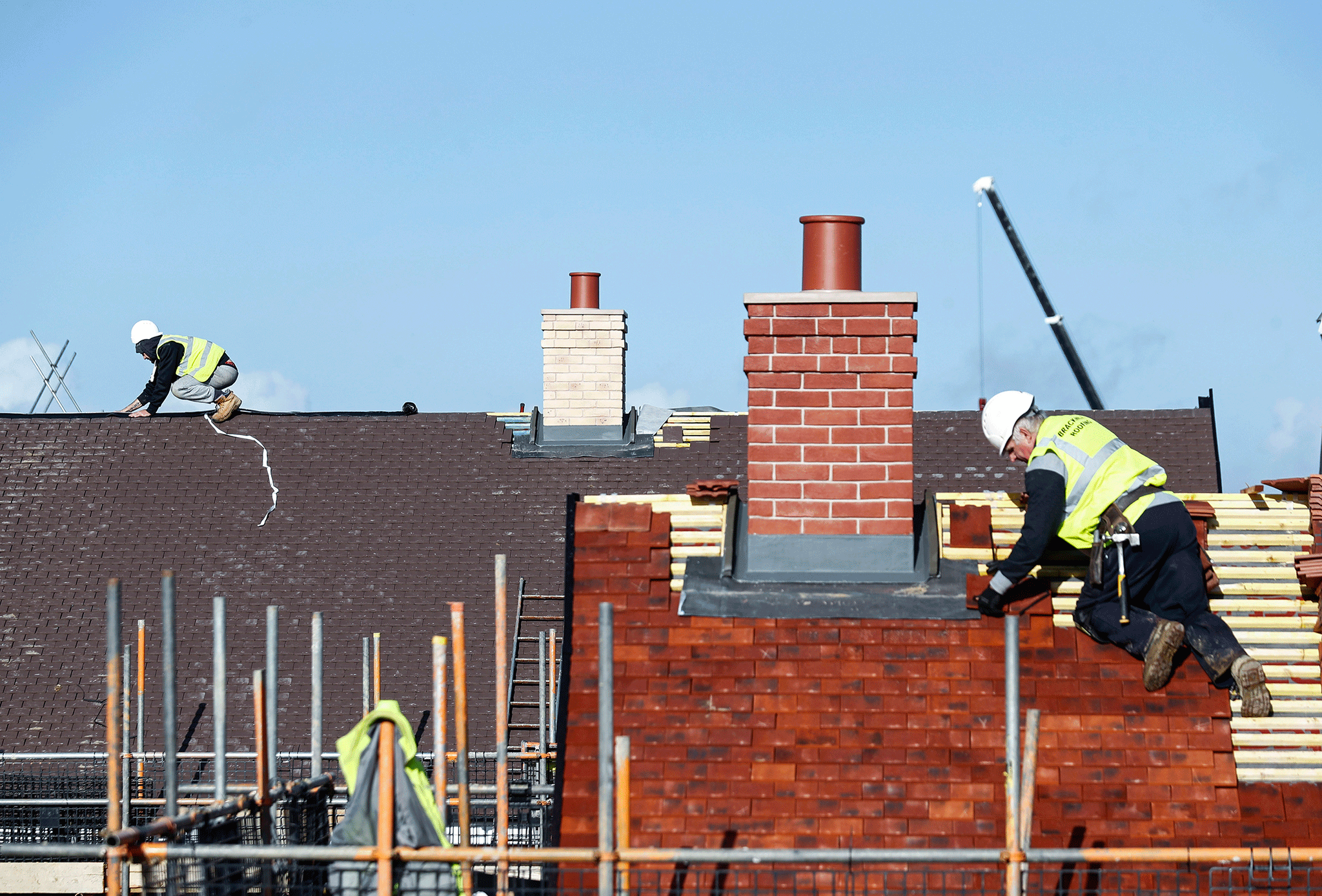Government needs to build three million social homes to solve housing crisis, finds landmark review
Ministers urged to invest in major housebuilding programme to offer social homes to ‘trapped’ private renters and ‘reverse decay’ of social mobility in Britain

Your support helps us to tell the story
From reproductive rights to climate change to Big Tech, The Independent is on the ground when the story is developing. Whether it's investigating the financials of Elon Musk's pro-Trump PAC or producing our latest documentary, 'The A Word', which shines a light on the American women fighting for reproductive rights, we know how important it is to parse out the facts from the messaging.
At such a critical moment in US history, we need reporters on the ground. Your donation allows us to keep sending journalists to speak to both sides of the story.
The Independent is trusted by Americans across the entire political spectrum. And unlike many other quality news outlets, we choose not to lock Americans out of our reporting and analysis with paywalls. We believe quality journalism should be available to everyone, paid for by those who can afford it.
Your support makes all the difference.An additional three million social homes are needed to solve the housing crisis, according to a landmark report which calls on the government to extend the criteria for who is eligible for social housing.
A major review by housing charity Shelter, commissioned in the wake of the Grenfell Tower disaster, urges ministers to invest £214bn in a 20-year housebuilding programme that will “reverse the decay” of social mobility in Britain.
The proposals, produced by 16 independent commissioners from across the political spectrum, would offer social homes to millions who fail to qualify under the current system, including young families and elderly people who are “trapped” in rented housing.
Specifically, the report calls for 1.27 million homes for those in greatest housing need, 1.17 million homes for younger families who cannot afford to buy and 690,000 homes for older private renters struggling with high housing costs beyond retirement.
The commissioners, who include former Labour leader Ed Miliband and ex-Tory chairman Baroness Warsi, argue that politicians cannot remain idle at a time when almost 280,000 people in England are homeless.
They also highlight the fact that half of young people have no chance of ever buying a home and private renters on lower incomes spend an average of 67 per cent of their earnings on rent.
Findings by Shelter last year showed more than 100,000 households had been stuck on council housing waiting lists for more than 10 years as the number of social homes dwindles to a record low.
Mr Miliband said: “This is a moment for political boldness on social housing investment that we have not seen for a generation. It is the way to restore hope, build strong communities, and fix the broken housing market so that we meet both the needs and the aspirations of millions of people.”
The review suggests the economic benefits of social housebuilding would ultimately outweigh the initial costs, stating it would require an average yearly investment of £10.7bn during construction, but that up to two-thirds of this could be recouped through housing benefit savings and increased tax revenue.
On this basis, the true net additional cost to the government, if the benefits were fully realised, would be just £3.8bn on average per year over the 20-year period – and after 39 years the investment would have fully paid for itself, says the report.
Baroness Warsi said: “Social mobility has been decimated by decades of political failure to address our worsening housing crisis. Half of young people cannot buy, and thousands face the horror of homelessness.
“Our vision for social housing presents a vital political opportunity to reverse this decay. It offers the chance of a stable home to millions of people, providing much needed security and a step up for young families trying to get on in life and save for their future. We simply cannot afford not to act.”
The report also calls for a series of reforms to improve social housing, including a new Ofsted-style consumer regulator to protect residents and enforce common standards across social and private renting, a new national tenants’ voice organisation and a new national standard to ensure enough investment in maintaining social homes and their surrounding neighbourhoods.
Campbell Robb, chief executive of the independent Joseph Rowntree Foundation, welcomed the report, saying the lack of affordable housing was “locking families out of achieving a decent life”.
“With high rents and housing benefit frozen, millions of families are backed into a corner, leaving them in a daily struggle to get by. Now is the time for the government to step up and act upon the concerns of struggling families,” he added.
Communities Secretary James Brokenshire said: “Providing quality and fair social housing is a priority for this government and our Social Housing Green Paper seeks to ensure it can both support social mobility and be a stable base that supports people when they need it.
“We’ve asked tenants across the country for their views and the thousands of responses we’ve received will help us design the future of social housing.
“Our ambitious £9bn affordable homes programme will deliver 250,000 homes by 2022, including homes for social rent. A further £2 bn of long term funding has already been committed beyond that as part of a ten year home building programme through to 2028.
“We’re also giving councils extra freedom to build the social homes their communities need and expect.”
Join our commenting forum
Join thought-provoking conversations, follow other Independent readers and see their replies
Comments